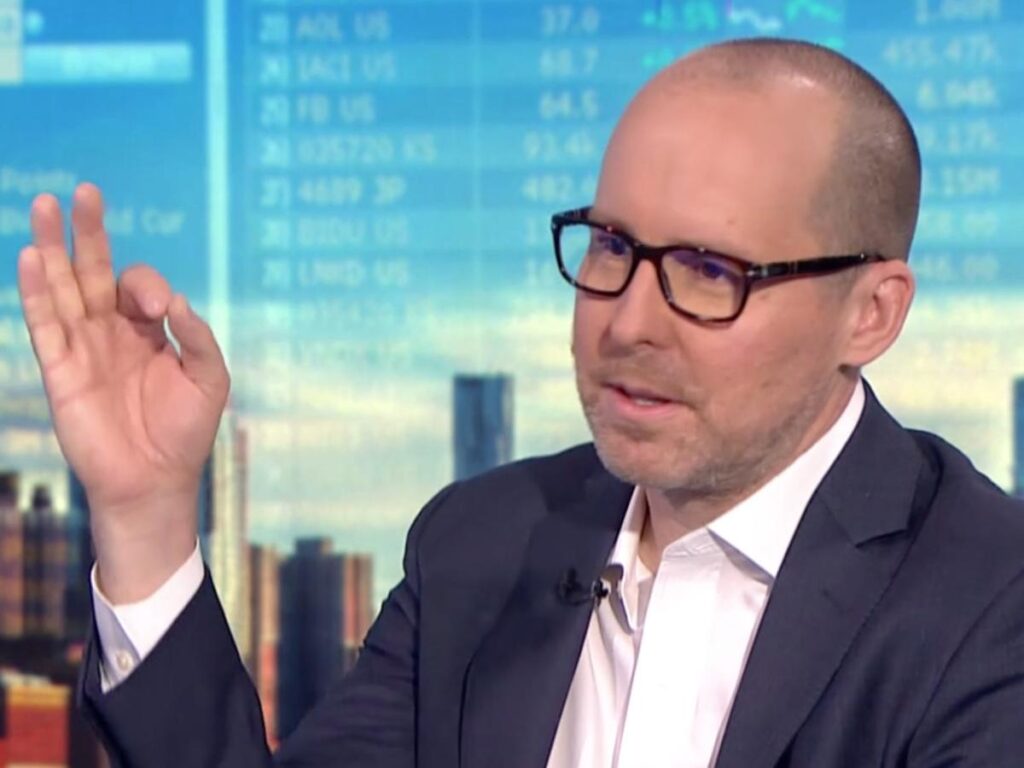-
Mark Spitznagel, a bearish investor, predicts stocks may soon lose over half their value in a sell-off.
-
He says a recession could happen by the end of the year, fueled by the government’s $34 trillion debt.
-
His fund, Universa Investments, has made billions from past stock-market crises.
A black-swan investor, Mark Spitznagel, says the stock market is heading for a historic sell-off, reiterating an uberbearish warning for investors who are getting comfortable with steady stock gains amid the frenzy over artificial intelligence.
In a recent interview with The Wall Street Journal, Spitznagel said the yearslong rally in the stock market amounted to the “greatest bubble in human history.”
He pointed to similarities with the dot-com bubble, when investors poured money into tech stocks before the frenzy fizzled and the Nasdaq crashed in 2000.
“You don’t feel like a fool for making a bearish argument,” he told the Journal.
But Spitznagel said the bubble — and the impact of its bursting — would be even more extreme this time around, as the government’s $34 trillion debt would make it more difficult for the Federal Reserve to turn the economy around in time to avoid a recession.
Spitznagel said the current rally would likely continue for months as inflation continues to fall and the Fed eases monetary policy, adding that stocks could soon lose over half their value in a subsequent sell-off.
In short, Spitznagel said the situation in markets was a “mega-tinderbox-time bomb.”
“I think we’re on the way to something really, really bad — but of course I’d say that,” Spitznagel said.
Spitznagel’s Universa Investments fund bets on “black swan” events moving markets. He made billions during the 2008 stock-market crash, the 2015 flash crash, and the onset of the COVID-19 pandemic in early 2020.
He’s been warning of a crash since January 2023, so while it’s not the first time he’s sounded the alarm, he said the timeline of a coming crisis was clearer now and that a recession could be in sight before the end of the year.
This story was originally published in July 2024.
Read the original article on Business Insider

